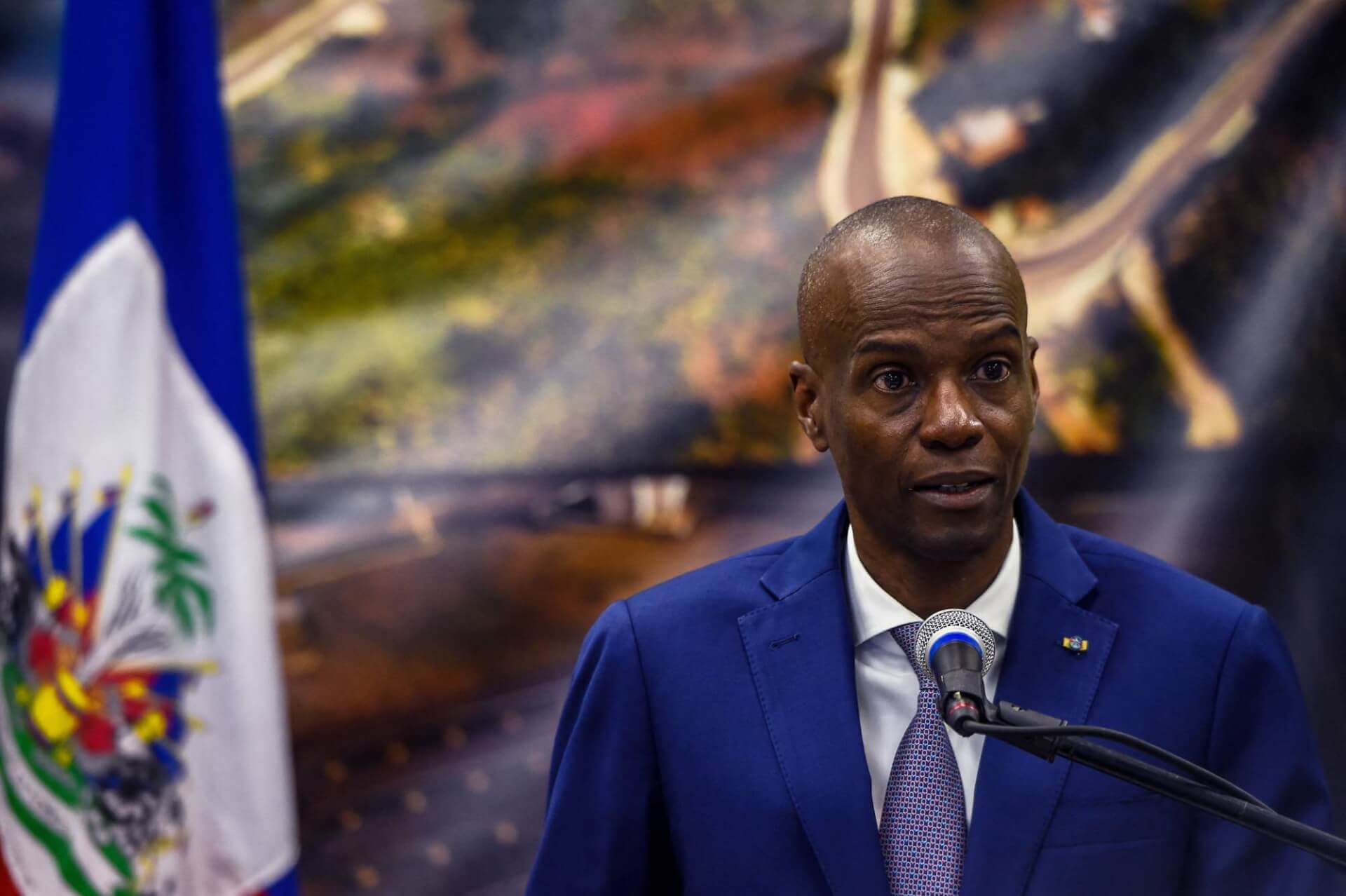Haitian President Jovenel Moïse, 53, was assassinated at his residence in Port-au-Prince in the early hours of Wednesday, confirmed interim Prime Minister Claude Joseph. Moïse’s wife, Martine, is currently in hospital recovering from a gunshot wound sustained during the attack. Joseph declared a ‘state of siege’ and announced the military has taken over security and is working alongside the police force.
Although no details have emerged on who carried out the assassination, Joseph said the gunmen spoke either Spanish or English in a “highly coordinated attack by a highly trained and heavily armed group.” In fact, there are reports that at least one of the gunmen had an American accent and pretended to be from the United States’ Drug Enforcement Agency (DEA), which some Haitian officials have suggested is an indication that they were mercenaries.
Moïse’s assassination plunges the country into an even deeper political crisis. There are merely ten elected officials in the country, and all of them are senators. Furthermore, the Supreme Court is currently leaderless, after its president, René Sylvestre, died last week from COVID-19.
This also complicates the succession dilemma. In regular circumstances, the president of the Supreme Court would take over. Seeing as the Supreme Court has no president, the task is likely to fall on the shoulders of interim PM Joseph; however, he would have to be approved by the parliament. In the absence of recent elections, though, the parliament is described as “effectively defunct.” Moreover, Moïse had only just appointed Dr. Ariel Henry as the country’s new PM on Monday; his appointment has yet to be confirmed, leaving interim PM Joseph, who had earlier announced his resignation, in limbo.
The assassination has been condemned by actors both within and outside Haiti. For example, Moïse’s predecessor, Michel Martelly, called it a “hard blow for our country and for Haitian democracy.” Likewise, PM Joseph called it a “hateful, inhumane, and barbaric act.”
Stéphane Dujarric, the spokesperson of United Nations Secretary-General António Guterres’, condemned the assassination “in the strongest possible terms” and said that the “perpetrators of this crime must be brought to justice.”
A number of other heads of state have also expressed their sadness and condemnation, including British PM Boris Johnson, US President Joe Biden, Canadian PM Justin Trudeau, European Union foreign policy chief Josep Borrell, Taiwanese President Tsai Ing-wen, Colombian President Iván Duque, Spanish PM Pedro Sánchez, and Chilean President Sebastián Piñera.
Meanwhile, Dominican Republic President Luis Abinader has ordered the “immediate closure” of the country’s border with Haiti.
Moïse’s assassination comes amid a prolonged period of political, economic, and social instability in Haiti, with political opposition arguing that the now-former president’s rule was illegitimate and citizens decrying rising levels of crime and poverty.
In recent months, protesters and political opposition had stepped up their demands for Moïse to step down, arguing that his five-year term ended on February 7, 2017, because his predecessor Michel Martelly’s term expired in February 2016. Moïse, however, argued that his term actually began in February 2017, since his inauguration was delayed by a year, during which Haiti was ruled by a provisional president due to severe mismanagement of the electoral process.
Against this backdrop, the legitimacy of Moïse’s government rested on shaky ground, given that he was leading by decree, since Haiti was unable to hold legislative elections in October 2020 due to “widespread unrest and a crippling economic crisis”. Consequently, most lawmakers’ terms have expired.
In fact, parliamentary elections were originally scheduled for October 2019, but could not be conducted due to “political gridlock and protests” that caused schools, businesses, and many government offices to shut down businesses, and many government offices to shut down.
Since dissolving the parliament in January 2020, Moïse was accused of corruption, after he and others of his administration were accused of embezzlement of funds. He was also criticised for political suppression, particularly after he said that “robbery, arson, and blocking public roads” would now be termed as terrorism. Furthermore, he established a parallel intelligence agency that “answers only to the president”, and has also restricted the influence of the courts.
The Haitian leader has also drawn criticism for attempting to: introduce constitutional amendments that will introduce forced conscription for citizens above the age of 18, create a vice-presidential position to replace the prime ministerial post, and implement a unicameral legislature that is elected every five years as opposed to the current Senate and Chamber of Deputies.
Moïse repeatedly said that he will step down in February 2022 and reassured the public that legislative and presidential elections will be held on September, and a run-off election on November 21. However, these promises failed to satisfy the opposition and protesters.
Moïse is also held responsible for rising crime and poverty and using armed groups to silence political dissent. During escalating protests in February, police arrested 23 people over the weekend on charges of plotting a coup and the murder of the president. The United Nations estimates that 133 people were killed during protests between October 2018 and December 2019, with 60 of them killed by the police, while the other 73 were largely killed by gang members.
Furthermore, roughly 60% of Haiti’s population makes less than $2 a day and the country’s economy contracted by 3.8% in 2020. Along these same lines, just last month, the United Nations Children’s Fund (UNICEF) reported that thousands of women and children in Haiti had been displaced over the last month due to rising gang violence, and that many of them now lack access to clean water and other basic necessities.
His assassination this week appears to have been a possibility for a few months now. In February, Moïse claimed to have survived an “attempt on his life” as part of an attempted coup. Erstwhile PM Joseph Jouthe claimed that security forces had uncovered a number of weapons.
Moïse’s death is expected to pave the way for a period of sustained volatility and upheaval.

